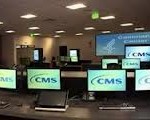After four years and 200 comments, CMS finalized the much‑awaited “60‑Day Rule” for reporting and repaying Medicare Part A and B overpayments (CMS issued a Final Rule related to Medicare part C and D overpayments in the May 23, 2014 Federal Register, 79 FR 29844, and will address Medicaid overpayments in future rulemaking). The 60-Day Rule is part of CMS’s efforts to reduce fraud, waste, and abuse in the Medicare program.
Section 6402(d) of the Affordable Care Act (ACA), created section 1128J(d) of the Social Security Act (codified at 42 U.S.C. 1320a-7k(d)), requiring a person or entity who has received an overpayment to report and return the overpayment to the appropriate entity by the later of: (1) 60 days after the date on which the overpayment was “identified”; or (2) the date any corresponding cost report is due (if applicable). Importantly, the ACA also made reporting and repaying overpayments within 60 days an “obligation” under the False Claims Act (FCA), and therefore subject to FCA liability. Proof of specific intent to defraud the government is not required for a person or entity to be liable under the 60-Day Rule.
The Final Rule slightly relaxes some of the onerous requirements in the 2012 Proposed Rule:
Six Year Lookback Period: CMS responded to numerous comments and concerns that the proposed 10-year look back period for identifying overpayments was too long. The 60-Day Rule changed the lookback period to 6 years, consistent with the statutory limitations for the FCA.
Definition of Identify: CMS acknowledged the numerous comments submitted on what it means to “identify” an overpayment and said, “We agree and have revised the language … to clarify that part of identification is quantifying the amount, which requires a reasonably diligent investigation.” According to CMS, “[t]he Final Rule clarifies that a person has identified an overpayment when the person has or should have, through the exercise of reasonable diligence, determined that the person has received an overpayment and quantified the amount of the overpayment.” CMS warned Medicare providers and suppliers not to use the “ostrich defense”; reasonable diligence includes both proactive compliance activities conducted in good faith by qualified individuals, and good faith investigation of credible information conducted in a timely manner by qualified individuals. Quantification of the amount of the overpayment may be determined using statistical sampling and extrapolation methodologies.
How to Report and Return Overpayments: The Final Rule states that providers and suppliers must use an applicable claims adjustment, credit balance, self-reported refund, or another appropriate process to satisfy the obligation to report and return overpayments.
The Final 60-Day Rule is available at: https://federalregister.gov/a/2016-02789. By way of comparison, the February 16, 2012 Proposed Rule is available at: https://www.gpo.gov/fdsys/pkg/FR-2012-02-16/pdf/2012-3642.pdf
To learn more about reporting or making repayments under the Final Rule, please contact Ryan Blaney, Dana Petrillo or any member of Cozen O’Connor’s Health Law team.







